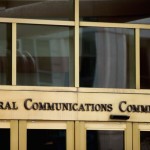Court Upholds FCC’s ‘Net Neutrality’ Rules
Judge Delays San Francisco Sugar Warnings

The San Francisco board of supervisors has approved an ordinance that would require warning labels to be placed on advertisements for soda and sugary drinks to alert consumers of the risk of obesity, diabetes and tooth decay. PHOTO: GETTY IMAGES
The city of San Francisco’s efforts to require health warning for soda and other sugar-added beverages, closely watching because of implications for similar warnings in other places, has been placed on hold by a federal judge. The delay, in effect, grants the beverage industry some more time pending the appeals process. The measure was set to go into effect July 25.
The Wall Street Journals explains that San Francisco seeks to “… require that billboards and other public advertisements include the language: ‘WARNING: Drinking beverages with added sugar(s) contributes to obesity, diabetes, and tooth decay. This is a message from the City and County of San Francisco.'”
The WSJ also notes that “… the American Beverage Association filed a civil complaint in the U.S. District Court for the Northern District of California last July, arguing that the requirement violates free-speech rights under the First Amendment. The California Retailers Association and California State Outdoor Advertising Association joined the complaint.”
Read more here: San Francisco’s Sugary-Drinks Warnings Delayed Pending Appeal
‘Stairway to Lawsuit’ As Led Zeppelin Defends Iconic Song

Led Zeppelin, from left, John Paul Jones, John Bonham, Jimmy Page and Robert Plant, in 1973. Credit Hulton Archive/Getty Images
You know they will have to play Stairway to Heaven in court, very likely over and over again. But, in a case that experts say might further evolve copyright law, Led Zeppelin is defending creation of the iconic song. The New York Times, in a page one story no less, says that “… the case focuses on the famous opening of “Stairway to Heaven,” in which an acoustic guitar plays arpeggiated chords in a descending pattern. That part, the suit contends, copied Spirit’s “Taurus,” released in 1968. In the suit’s complaint, Francis Malofiy, the lead lawyer representing the plaintiff, said that Led Zeppelin’s members heard Spirit’s song when the bands crossed paths on the road early in their careers.”
The guy with Spirit who, it is claimed, actually created the signature riff didn’t bring a lawsuit in his lifetime. But in recent years, courts have ruled that such challenges can happen long after a copyright is established by creation, and the musicians’ estate brought the lawsuit, which has been famously making its way through the California justice system for years. Now, it’s expected to be a headliner all summer.
Read the Times’ take here: Led Zeppelin’s ‘Stairway to Heaven’ to Be Scrutinized in Court in Copyright Case
One Nation? It’s All Regional When It Comes To Staying In U.S.A.
The Associated Press, using the Freedom of Information Act, is reporting that “… youngsters whose applications are handled by the U.S. government’s regional offices in San Francisco and Los Angeles are far more likely to win approval from asylum officers than those applying in Chicago or Houston…” and the report also explains that “… the figures offer a snapshot of how the government is handling the huge surge over the past two years in the number of Central American children arriving at the U.S.-Mexico border unaccompanied by adults. Tens of thousands of youngsters — many of them fleeing gang violence in El Salvador, Guatemala and Honduras — have overflowed U.S. shelters and further clogged the nation’s overwhelmed immigration courts.”
The AP backgrounds that “… under federal law, these children can apply to remain in the country in a process that involves an interview with an asylum officer from one of U.S. Citizenship and Immigration Services’ eight regional offices. To win their cases, they must show that they have been persecuted or are in danger of persecution.” The report notes that “.. overall, 37 percent were granted asylum, but the rate varied dramatically from 86 percent at the San Francisco office, which handles applications for a swath of the Pacific Northwest, to 15 percent in Chicago, which covers 15 states from Ohio to Idaho.”
Read how much geography is destiny here: AP Exclusive: Children’s Asylum Approvals Vary by US Region
